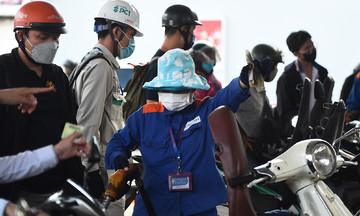Following prime minister Pham Minh Chinh's directive, the Ministry of Agriculture and Environment is tasked with issuing and clarifying regulations for food safety certification of agricultural exports, particularly for dragon fruit and pepper. The aim is to ensure compliance with EU import standards while preventing further economic losses and supply chain disruptions.
 |
Dragon fruit in Ham Thuan Nam district, Binh Thuan province. Photo: Viet Quoc |
Dragon fruit in Ham Thuan Nam district, Binh Thuan province. Photo: Viet Quoc
The prime minister also instructed provincial People's Committees to collaborate with relevant ministries and agencies to support businesses. Coordinated solutions are needed to expedite customs clearance and minimize damage to Vietnam's export reputation.
The situation in Binh Thuan province is alarming. Huynh Canh, chairman of the provincial Dragon Fruit Association, reported over 100 tons of dragon fruit spoiled due to prolonged storage, with another 50 to 70 tons awaiting export certification. The main issue is the lack of a designated government agency to endorse phytosanitary certificates.
Pepper exporters face similar challenges. Two companies belonging to the Vietnam Pepper Association are holding approximately 2.4 million USD worth of pepper due to certification issues related to EU market regulations.
Bui Xuan Hoang Henry, general director of Hoan Vu Testing Center, explained that since July 1st, the center has been assisting businesses with the certification process. However, bureaucratic hurdles in issuing food safety certificates—a responsibility of government agencies—prevent the export of tested goods.
"We used to inspect around 20 shipments daily for export to the EU. Since the beginning of July, everything has nearly stopped," he said.
A regular EU exporter confirmed facing ongoing delays in obtaining necessary certifications since early July despite continuous efforts.
Ho Chi Minh City’s Food Safety Department recently issued an urgent request for the prompt release of standardized certification procedures in line with international standards. They cited the lack of a legal framework as the reason for the local authorities’ inability to issue compliant certificates.
Nguyen Quang Hieu, deputy director of the Plant Protection Department (Ministry of Agriculture and Environment), said the department is reviewing and adjusting administrative procedures. Revisions are being expedited to ensure uninterrupted exports. The department is prepared to collaborate with local authorities to support online procedures for businesses, facilitating swift responses to import market demands.
Thi Ha












